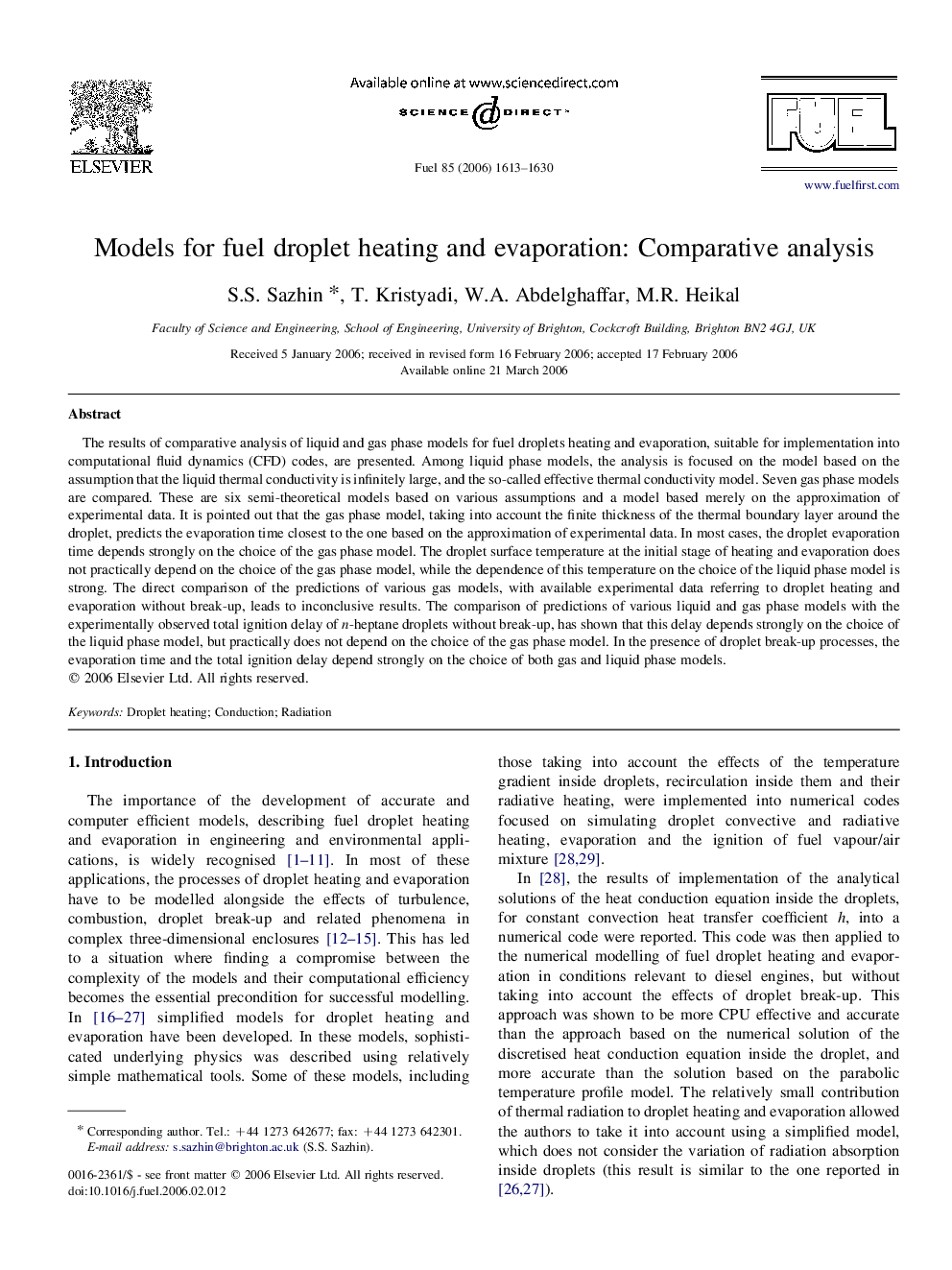| کد مقاله | کد نشریه | سال انتشار | مقاله انگلیسی | نسخه تمام متن |
|---|---|---|---|---|
| 208504 | 461256 | 2006 | 18 صفحه PDF | دانلود رایگان |

The results of comparative analysis of liquid and gas phase models for fuel droplets heating and evaporation, suitable for implementation into computational fluid dynamics (CFD) codes, are presented. Among liquid phase models, the analysis is focused on the model based on the assumption that the liquid thermal conductivity is infinitely large, and the so-called effective thermal conductivity model. Seven gas phase models are compared. These are six semi-theoretical models based on various assumptions and a model based merely on the approximation of experimental data. It is pointed out that the gas phase model, taking into account the finite thickness of the thermal boundary layer around the droplet, predicts the evaporation time closest to the one based on the approximation of experimental data. In most cases, the droplet evaporation time depends strongly on the choice of the gas phase model. The droplet surface temperature at the initial stage of heating and evaporation does not practically depend on the choice of the gas phase model, while the dependence of this temperature on the choice of the liquid phase model is strong. The direct comparison of the predictions of various gas models, with available experimental data referring to droplet heating and evaporation without break-up, leads to inconclusive results. The comparison of predictions of various liquid and gas phase models with the experimentally observed total ignition delay of n-heptane droplets without break-up, has shown that this delay depends strongly on the choice of the liquid phase model, but practically does not depend on the choice of the gas phase model. In the presence of droplet break-up processes, the evaporation time and the total ignition delay depend strongly on the choice of both gas and liquid phase models.
Journal: Fuel - Volume 85, Issues 12–13, September 2006, Pages 1613–1630